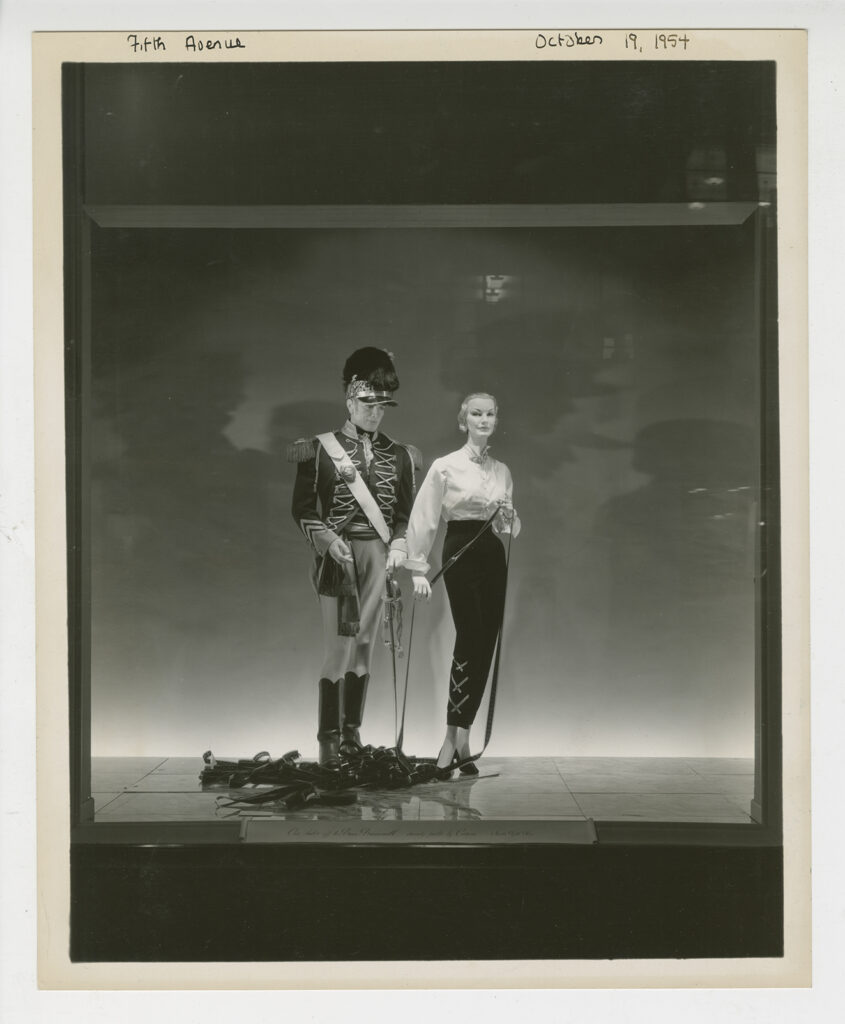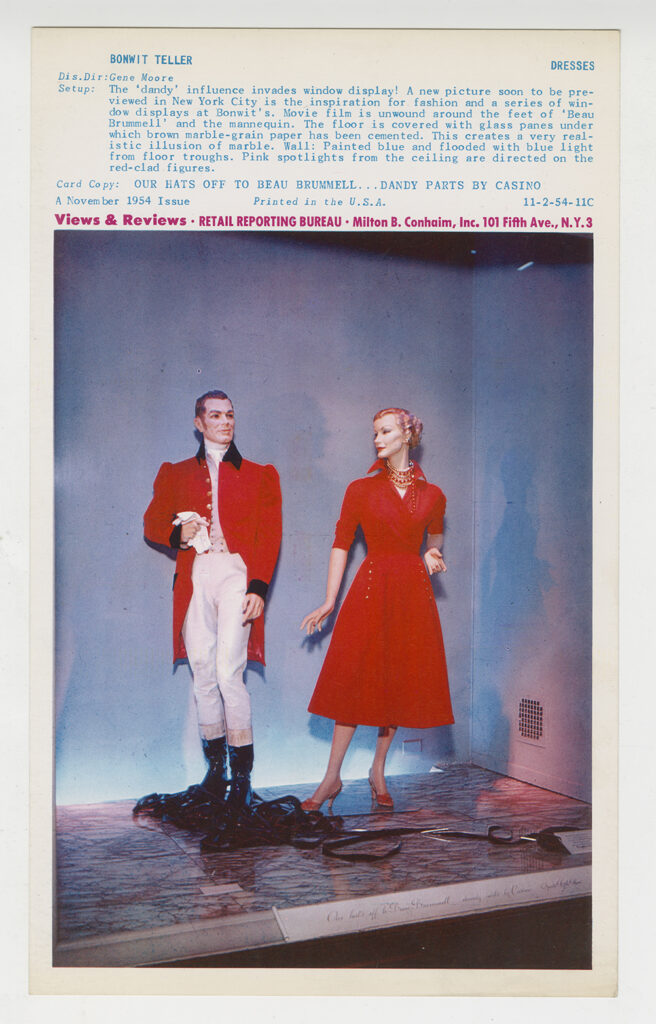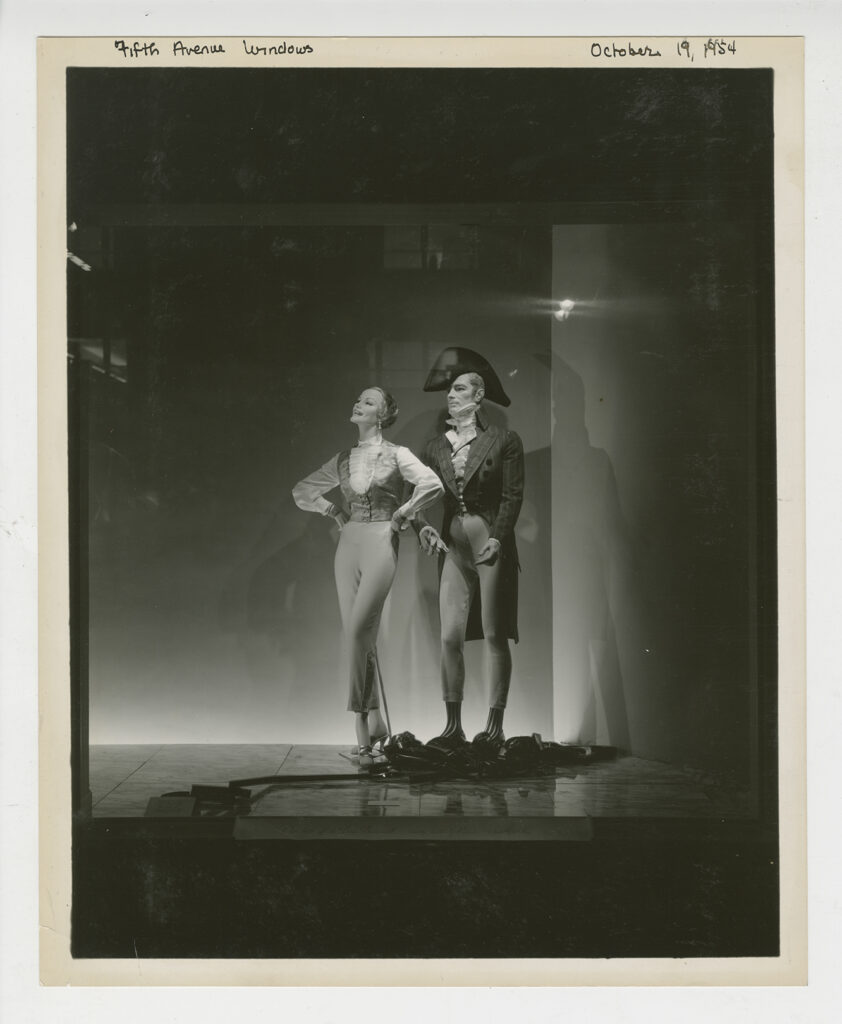How has Hollywood helped to remember—and mythologize—Beau Brummell?
2006: Philippa Lowthorpe, director. Beau Brummell: This Charming Man. BBC Television. 1hr, 18 min. Based on the biography of Beau Brummell by Ian Kelly. Starring: James Purefoy as Beau Brummell, Hugh Bonneville as the Prince of Wales, Phil Davis as Robinson, Brummell’s valet, and Matthew Rhys as Lord Byron. Costume designer: Margie Bailey.
1954: Curtis Bernhardt, director. Beau Brummell. Metro-Goldwyn-Mayer. 1 hr, 53 min. Based on the 1890 play Beau Brummell by Clyde Fitch. Starring: Stewart Granger as Beau Brummell, Peter Ustinov as the Prince of Wales, James Hayter as Mortimer, Brummell’s servant, and Elizabeth Taylor as Lady Patricia Belham. Costume designer: Elizabeth Haffenden.
1924: Harry Beaumont, director. Beau Brummell. Warner Bros. 2 hrs, 15 min. Screenplay by Dorothy Farnum, based on the 1890 play Beau Brummell by Clyde Fitch. Starring: John Barrymore as Beau Brummell, Williard Louis as the Prince of Wales, Alec B. Francis as Mortimer, Brummell’s butler, and Mary Astor as Lady Margery Alvanley. Available on YouTube.
1913: James Young, director. Beau Brummel. 15 min. Vitagraph Studios, Brooklyn. Screenplay by Eugene Mullin, based on the 1890 play Beau Brummell by Clyde FitchStarring: James Young as Beau Brummell, Charles Chapman as the Prince of Wales, Etienne Giradot as Isadore, Brummel’s Valet, and Clara Kimball Young as Helen Ballarat. Presumed lost.
1890-1907. Beau Brummell. Broadway runs: Madison Square, Garden, New Amsterdam; National tours. Play by Clyde Fitch. Starring: Richard Mansfield.
1890. Beau Brummell. First play by American dramatist William Clyde Fitch. Papers: Archives & Special Collections at Amherst College.
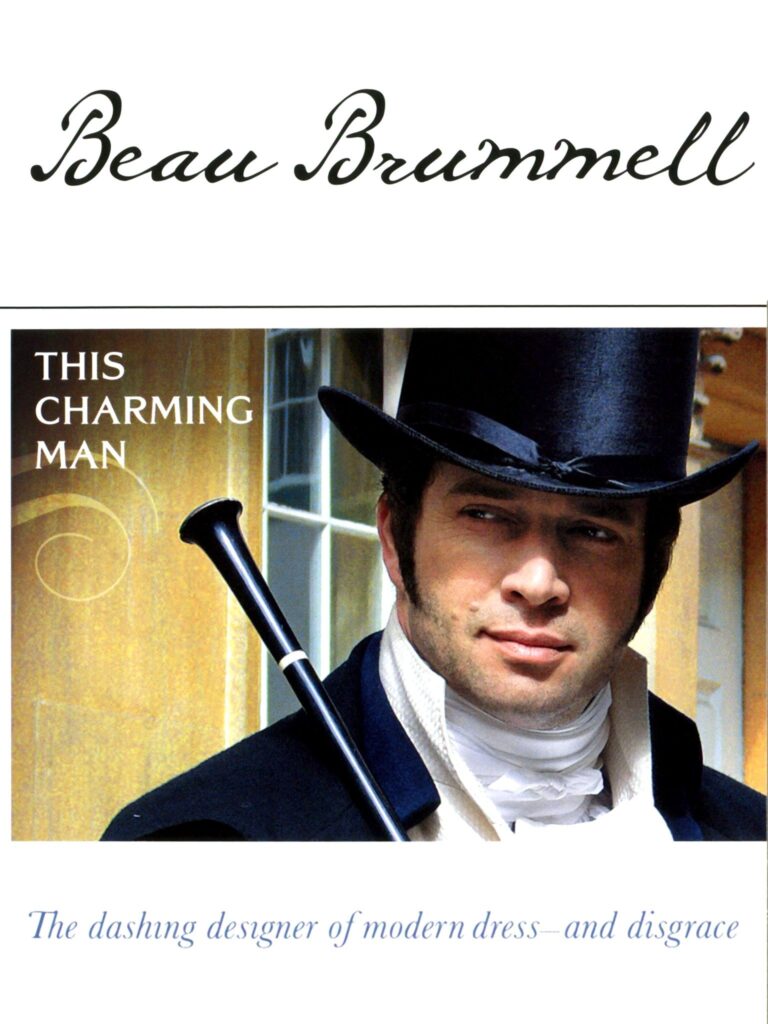
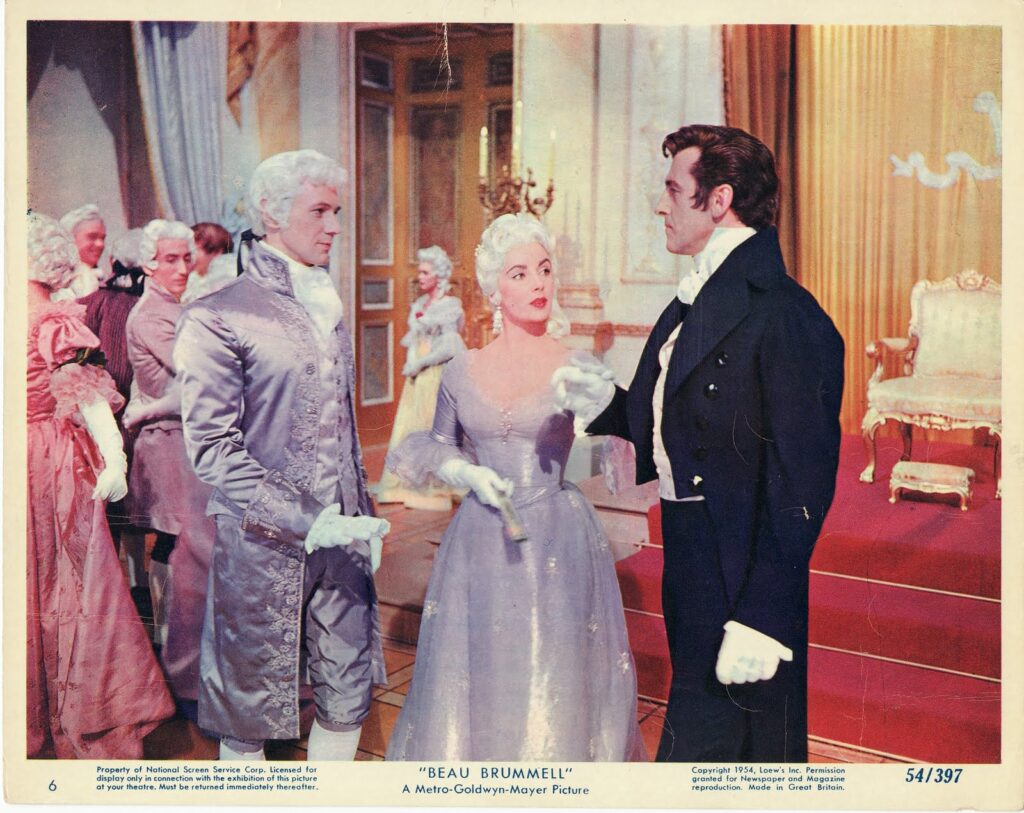
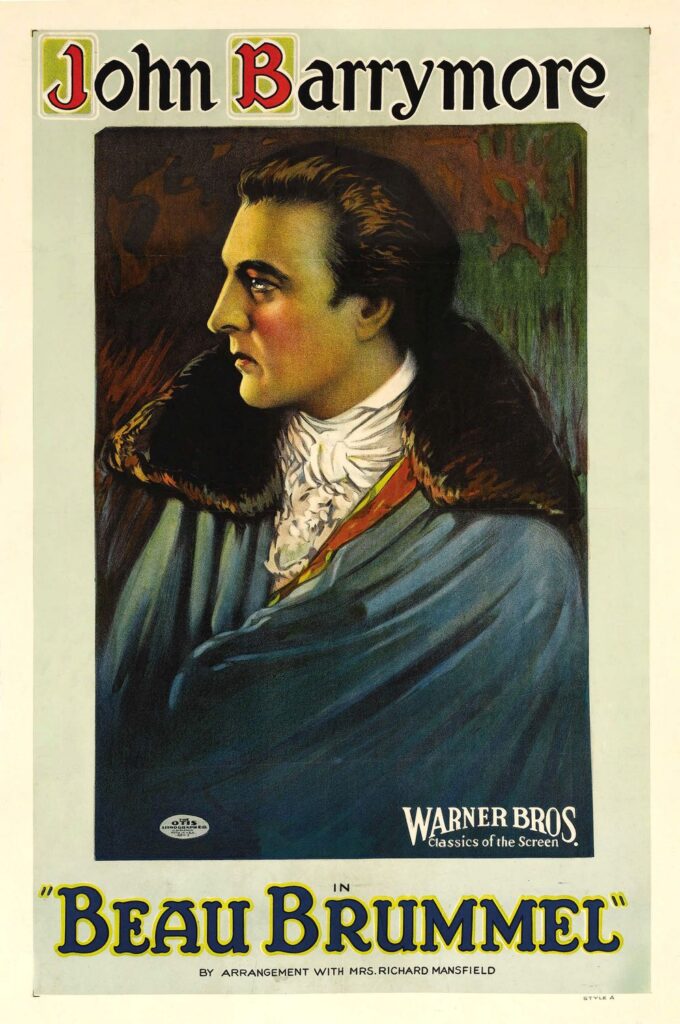
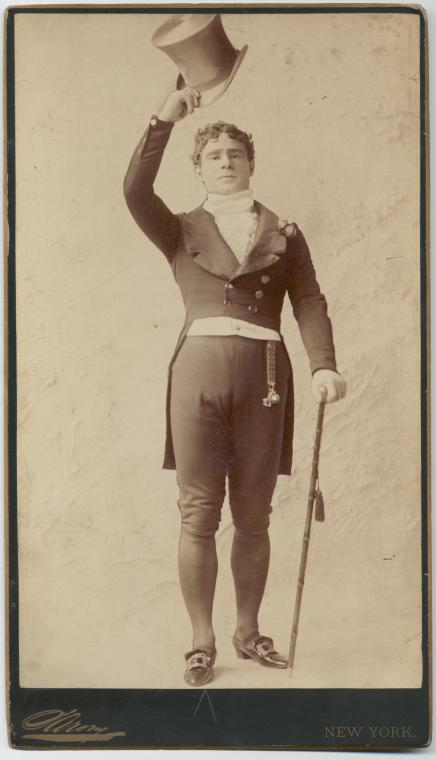
1890: Richard Mansfield (NYPL Picture Collection)
Press:
“Mr. Mansfield’s Beau Brummell is doubtless one of the most distinct triumphs of the modern stage. Such a dainty creature is this bean, with his supreme regard for that which is “quite correct” and his horror of that which is “bad form,” so abhorrent of wrinkles, so indifferent to creditors, so interested in his boots, his coat, his cravat, his fingernails, and so imperturbable.” Review, New York Times, January 1, 1891.
“It is not easy to give a role foolishness and foppishness and with them elegance and manliness. In some way Mr. Mansfield always makes one side of his nature suggest the other.” Review and contextual history, Nebraska State Journal, April 24, 1894; Willa Cather Archive.
According to wikipedia (sources unverified): Fitch was a dandy from a young age, despite being seen as a sissy at school, but said, “I would rather be misunderstood than loose my independence.” He also may have had a brief relationship with (fellow dandy) Oscar Wilde.
For a collection of Bonwit Teller windows that featured costumes from the 1954 movie alongside women’s fashion, see the digitized collection at the New School Archives and Special Collections:
